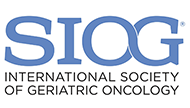First comment is that oncologists and caregivers, in clinical practice, poorly define QOL status.
As well as fatigue is difficult to define, because of its multidimensional cause; QOL needs didactic propositions to be exactly specified. Algorithms clearly conducted and broadcasted may enhance physician’s involvement.
Second comment; hurdles of QOL evaluation are notably crucial in elderly population, more frail and likely to deteriorate during cancer disease.
Many scales exist, with a hazardous use in oncological physician population. For example:
- Comprehensive Geriatrics Assessment is a multidimensional, interdisciplinary diagnostic process to identify care needs, plan care and improve outcome of frail older people
- G8: Validation of the G8 screening tool in geriatric oncology.
Pain, fatigue, nutritional status as well as anxiety, depression and cognitive disorders, should be alleviate but are bad defined and often misjudged. Supportive treatments may alleviate suffering and enhance daily living, as well as anti-cancer treatment adaptation. Unmet needs must be retrieve and solutions for this must be developed (Patients Reported Outcome, symptom distress list, etc.). In order to offer a multidisciplinary perspective of patient assessment and practical guidelines, oncologists, geriatric specialists, pharmacists and nurses will be included in the committee. Patient’s view and environment are often better reached by nurses, it’s because we incorporated nurses involved in the guideline’s topics, to define elderly and stakeholders unmet needs. Elderly patients have often many co morbidities. In that field, a lot of drugs are used and drug-drug interaction may impact efficacy as well as safety of anticancer treatments (and their support drugs). Networks including pharmacists should be developed in such guidelines propositions. First step is to define QOL in elderly people, then find solutions to assess it. A board with physicians, patients and caregivers, may develop these needs and publish them as international practical guidelines.


